Success in South Korea requires familiarity with Korean business culture
ASIA BUSINESS FACTSBUSINESS TIPSSOUTH KOREA
Alan Wong
4/30/202412 min read
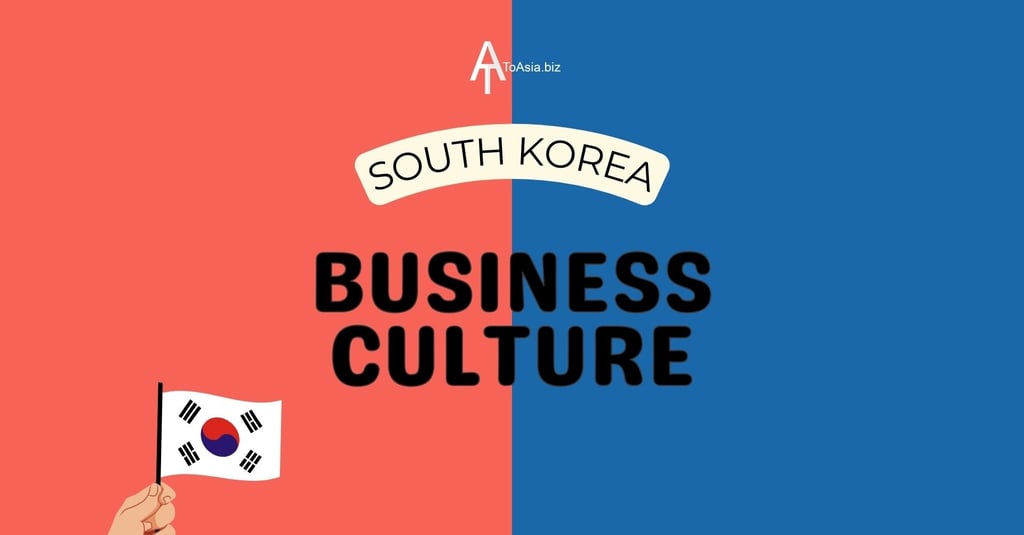

In the heart of East Asia, South Korea stands as a testament to resilience and innovation in the global economic arena.
Historically emerging from a narrative of recovery and growth, this nation has become an emblem of rapid industrialization and a leading player on the world stage.
Boasting the distinction of being the world's tenth-largest economy, South Korea is not just about impressive economic statistics; it encapsulates a society that has seamlessly woven its technological savviness with an unparalleled work ethic to cultivate a thriving and diverse economy.
At the epicenter of its economic vigor is South Korea's strategic positioning, bridging ancient traditions with modern global commerce.
Seoul, the vibrant capital, buzzes with relentless business activity, a true reflection of the nation's dynamism.
In this blog, we will unveil the strategies, norms, and expectations that define successful commercial engagements in this unique environment.
From the intricate hierarchies that govern corporate dynamics to the critical personal relationships that drive business forward, we will guide you through the pillars of Korean corporate etiquette.
Understanding Korean business culture demands appreciation for the harmonious blend of time-honored customs with contemporary corporate practices—a duality that is fundamental for any enterprise doing business in Korea.
Making a Strong First Impression in South Korean Business
First impressions are not just important; they can define the future of professional relationships.
Here are key points to consider for initial business meetings:
Tips for Initial Business Meetings
Preparation is crucial.
Before the meeting, familiarize yourself with the company’s background and the attendees’ profiles.
When greeting, use a light bow with a handshake, and wait for your South Korean counterpart to initiate.
Be respectful and if you’re not fluent in Korean, it’s advisable to have a translator to facilitate communication.
Small talk is important, but let the host lead the conversation.
Dress Code and Punctuality
In terms of attire, conservatism is the default mode.
Men should wear suits in neutral colors, and women should opt for professional outfits that are modest.
The aim is to appear neat, well-groomed, and unassuming.
Punctuality is non-negotiable.
Arriving on time, or even a few minutes early, is a sign of respect.
It reflects on your reliability and commitment to the engagement.
Cultural Curiosity
Expect questions about your background, such as your birthplace, as it’s a way for Korean professionals to find common ground or elements of reliability.
Such questions are not prying but are meant to build a personal connection that is highly valued in Korean culture.
If your birthplace or experiences align with something familiar to them, it can quickly become a foundation for a stronger rapport.
Navigating these nuances with grace and cultural understanding can help you cement a positive reputation in the South Korean business environment, paving the way for fruitful collaborations.
Korean Business Culture Conclusion
Navigating South Korea's business culture demands an understanding of its core values—hierarchy, harmony, and personal connections.
Practices such as hoesik and the emphasis on chaemyeon and inhwa illustrate the importance of social rituals and mutual respect.
With a business landscape that also leans heavily on MBTI for interpersonal understanding, it’s clear that personal dynamics play a critical role in professional success.
To truly thrive in South Korea’s corporate world, a dynamic and adaptable mindset is essential.
This approach, coupled with respect for cultural norms, can open doors and create meaningful opportunities for collaboration.
The richness of South Korea's business environment lies in its blend of tradition and innovation, offering a myriad of opportunities for those ready to embrace its culture with open arms and an adaptable strategy.
Whether you're an established entity or a newcomer, South Korea presents a vibrant arena for growth and success.
With over 50 years of experience combined with our team at ToAsia.biz, we are ready to provide business consultation services to lead your business into the Asia Pacific region - profitably.
For more detailed Asia business insights and Asia Market Entry Strategies, connect with our team and see how our playbook is different from other business consultants out there where our focus is to help you expand at the right pace, staying lean and profitable.


Business Culture: The Role of Hierarchy in Corporate
Hierarchy shapes the very essence of South Korea's corporate ethos, resonating through every layer of business practice.
Far from a simple organizational necessity, it is a societal cornerstone, acknowledging and honoring factors like age, position, education, and marital status.
These elements not only define one's corporate identity but also guide interactions within the business realm.
Approaching South Korean companies often involves personal questions that may surprise those from less hierarchical cultures.
These inquiries are not meant to pry but to understand one's place within the social structure, ensuring that interactions proceed with the due regard for etiquette and respect that is highly valued in Korean society.
Grasping the nuances of this hierarchy is crucial for anyone seeking to do business in South Korea.
Corporate titles here are laden with meaning, signaling an individual’s level of authority and deserving respect.
Recognizing and using these titles appropriately can facilitate negotiations and open channels of communication.
This reverence for hierarchy extends to business operations and decision-making.
Authority is concentrated at the top, with senior figures holding the reins of approval.
Consequently, decisions may be deliberative, seeking alignment and endorsement from the upper levels.
Moreover, this structure expects that those in lower ranks will align with the direction set by their superiors.
Western business professionals, used to flat organizational structures, may find this hierarchical approach challenging.
Nonetheless, with a respectful understanding of these dynamics, one can navigate successfully through the complexities of Korean business culture.
Recognizing someone’s hierarchical position is more than courtesy; it's a strategic aspect of business communication that can significantly influence the outcome of business dealings.
To engage successfully with this distinct business culture, foreign companies must balance a deep respect for these traditions with their business ethos.
Those who can skillfully integrate an understanding of Korean hierarchy with their operational approach are likely to establish stronger, more fruitful business relationships within South Korea’s energetic economy.


Importance of Korean Business Culture Concept: Injeong and Kibun
In the nuanced world of South Korean business, two principles are paramount: Injeong and Kibun.
Injeong is the heartfelt recognition of another's abilities and situation—it's about building a genuine connection that acknowledges and respects someone’s contributions and status.
Injeong is at the core of developing strong, trust-based relationships in the workplace.
To foster Injeong, invest time in knowing your colleagues and business partners beyond the boardroom.
Attend social outings, celebrate milestones, and participate in team events.
Showing you value someone's role and respect their achievements reinforces this connection.
Kibun, often equated with the concept of ‘saving face,’ is about protecting one’s dignity and ensuring emotional well-being.
It's a social dance that involves a high level of tact and care, especially when communicating.
To keep Kibun intact, direct confrontation is avoided, and indirect phrases like “I’ll try” are favored, which allows all parties to maintain respect and avoid embarrassment.
When doing business in South Korea, it's critical to be delicate and considerate to preserve Kibun.
It's about the subtleties of communication, where tone and context play vital roles, and being forthright is balanced with being diplomatic.
Harmony is the underlying melody of Korean business relations and is maintained through thoughtful interaction.
It’s about contributing positively to group dynamics, being amenable, and handling disputes with a mindset geared towards consensus and mutual respect.
Embracing Injeong and Kibun can lead to more than just business success;
it forges lasting bonds underpinned by mutual respect and personal rapport.
In South Korea, business is as much about these personal relationships as it is about the bottom line.
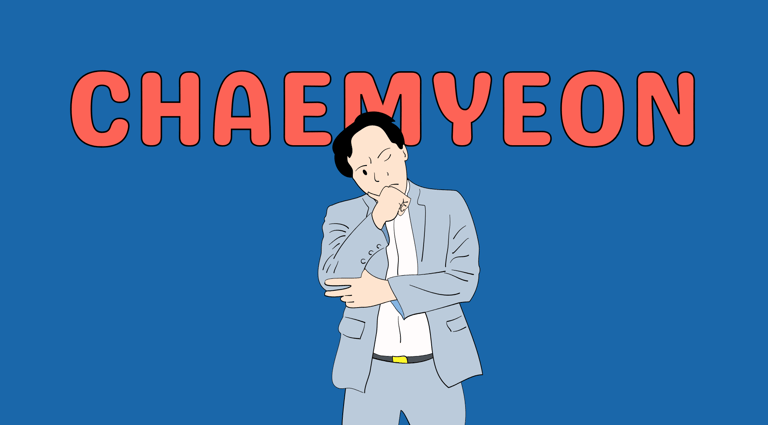

Chaemyeon: Upholding Honor in Korea’s Business Culture
체면 (chaemyeon), often translated as ‘face,’ is a cornerstone of Korea's business culture, encapsulating one’s honor, dignity, and social standing.
It’s a reflection of how individuals want to be seen by others, and it remains crucial in modern South Korea.
Despite a shift towards more openness, maintaining chaemyeon still means managing one’s appearance in every aspect—be it in personal disposition, professional achievement, or even through material possessions.
In a society that values harmony, chaemyeon also involves controlling one’s emotions.
It’s about maintaining a composed exterior, keeping any negative feelings out of the public eye.
This restraint is seen as essential for one's dignity and for preserving social harmony.
The idea is to present a controlled image that keeps one’s reputation intact.
Understanding chaemyeon is vital in the Korean business world. It’s not just about saving one’s own face but also about not causing someone else to lose theirs.
Actions and decisions are often influenced by this concept, as maintaining honor and dignity is intertwined with business interactions.
In essence, being aware of and sensitive to chaemyeon can foster smoother relationships and better business dealings in Korea


Inhwa: The Pursuit of Harmonious Business Relations in Korea
The concept of 인화 (inhwa), central to Korean culture, is particularly prevalent in business, where it denotes harmony—a prized outcome derived largely from Confucian ideals.
Inhwa is about creating and maintaining positive relationships within the organizational structure.
It represents a collective effort to achieve a harmonious atmosphere in various social contexts, including the workplace.
To uphold inhwa, Koreans often veer away from outright refusals or negative responses, as these can disrupt the balance and create discord.
Instead, they prefer to give affirmative replies or gently deflect requests, thus avoiding confrontation.
In doing so, they not only maintain harmony but also preserve 체면 (chaemyeon), the respect and dignity of all involved.
This emphasis on harmony is most evident in hierarchical business settings.
In interactions between superiors and subordinates, inhwa encourages a respectful and concordant environment, even in the face of disagreement or potential conflict.
By fostering inhwa, the workplace becomes a space where the hierarchical structure supports a positive and cooperative atmosphere rather than a rigid or authoritarian one.
In practical terms, understanding inhwa in the Korean business context means recognizing the importance of a collaborative approach, the avoidance of conflict, and the emphasis on collective well-being.
It is about prioritizing the group's harmony over individual desires, ensuring that business decisions and interactions contribute to a cohesive and unified work environment.
For international business professionals, adapting to this aspect of Korean business culture can lead to stronger partnerships and a more nuanced understanding of the dynamics within Korean corporations.
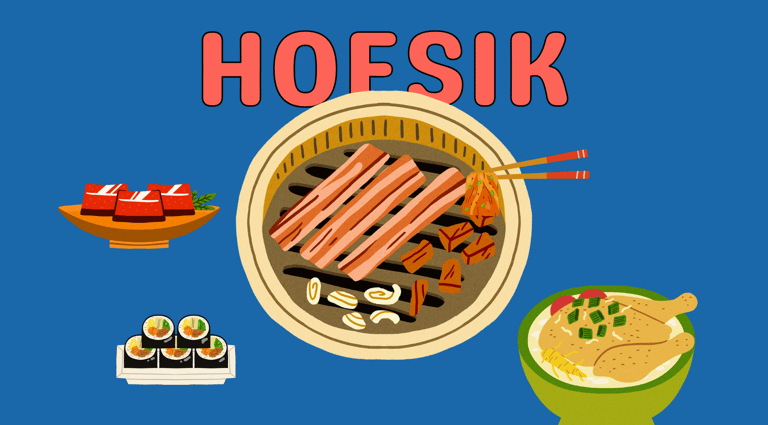

After-Hours Socializing: Hoesik in South Korean Business Culture
The significance of hoesik or dining out with colleagues after work in South Korea cannot be overstated.
This is a key part of building and maintaining work relationships.
These gatherings are less about the food and more about fostering a sense of unity and easing the hierarchical structure found in the workplace.
Sharing a meal and conversation in a relaxed setting helps colleagues bond and can lead to more harmonious interactions back at the office.
Participating in hoesik is seen as both a social outing and an extension of professional life, underscoring one’s dedication to the team.
While it’s generally expected for team members to attend, the practice also reflects broader social changes, with many now valuing personal time and work-life balance.
Hoesik can influence business dealings by strengthening the rapport between colleagues, which in turn can lead to more effective communication during formal negotiations.
For those new to Korean corporate culture, joining these gatherings can be an excellent opportunity to integrate into the team and demonstrate a commitment to workplace relationships.
It's important to observe certain etiquette during hoesik, like waiting for senior colleagues to start eating or drinking.
Although the setting is informal, maintaining a professional demeanor is key.
With alcohol often being part of these events, it’s wise to drink in moderation.
Understanding and participating in hoesik can give you a unique insight into the South Korean business environment, helping to build the trust and camaraderie that are so valued in this culture.
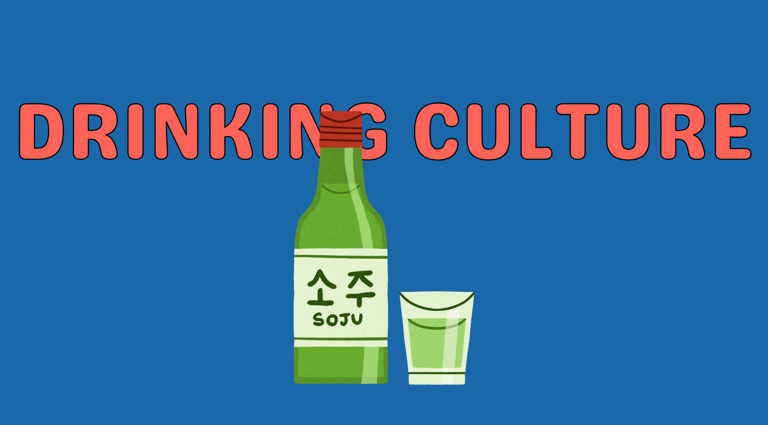

Drinking Culture in South Korean Business
In South Korea, drinking plays a pivotal role in business etiquette and social bonding, reflecting one of the highest rates of alcohol consumption globally.
Within this context, serious drinking sessions are not merely about leisure; they're a testament to stamina and sometimes a venue for exchanging key business insights.
As the evening wears on, it's not unusual for critical business information to surface.
Thus, staying alert and sociable can be as important as the business meeting that preceded the drinking.
Despite a strong tradition, there’s a growing trend toward health consciousness, and heavy drinking has seen some decline.
Still, for the over-50 demographic and in many traditional business settings, sharing meals and drinks continues to be integral to relationship-building.
When engaging in South Korea's vibrant business scene, an evening will likely transition from a dinner to a drinking session with Korean partners, often involving rounds of soju.
Here are some essential tips for understanding and participating in Korea's drinking etiquette:
Two-handed Respect: When receiving a drink, use both hands or support your right arm with your left hand beneath your elbow. This gesture has roots in the traditional attire of Korea, where arranging large sleeves was necessary.
Raising Glasses: Always lift your glass off the table when someone is pouring a drink. It's considered impolite to pour into a glass that's still on the table.
Initiate Offering: If you notice an empty glass, it's courteous to offer to fill it. However, wait for the person to lift their glass before pouring.
Wait to be Served: Don’t pour your own drink. In Korea, it's expected that someone else will fill your glass, and leaving it empty might prompt an apology from others.
Wait for an Empty Glass: Don’t top off a drink that's not finished. If someone wants to pour more, finish your drink first.
Respectful Drinking: When drinking with elders or superiors, turn your head to the side as a sign of respect.
Eating and Drinking: Korean drinking often includes eating, so if you’re planning to drink after a meal, save room for the accompanying snacks.
Understanding your limits and being aware of these cultural nuances can lead to more effective and enjoyable business interactions in Korea.
While the drinking culture is robust, always prioritize your well-being and don't feel pressured to keep up if it compromises your health.
Demonstrating respect for the culture while also setting your boundaries is key to successful business relationships in South Korea.
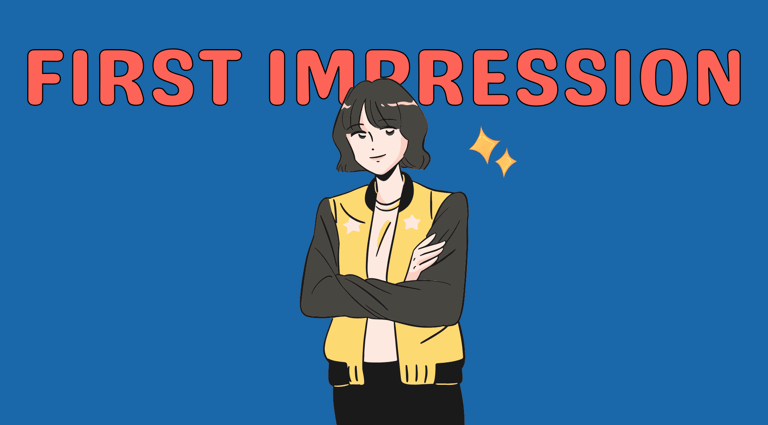

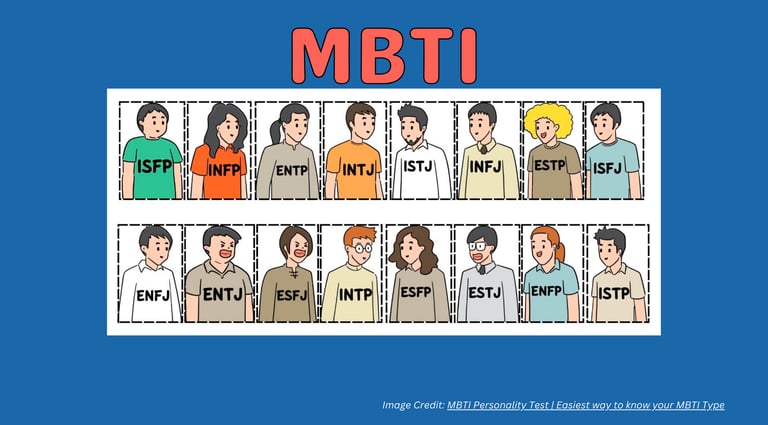

MBTI in South Korean Business Culture
In South Korea, the Myers-Briggs Type Indicator (MBTI) has evolved beyond its origins as a psychological assessment into a cultural mainstay that touches on various aspects of daily life, including the world of business.
In the professional sphere, it has become more than just a tool for team building or personal development; it's a conversation starter, a networking hack, and sometimes even a component in hiring processes.
MBTI's role in business interactions is multi-faceted.
It often comes into play in understanding team dynamics, assigning project roles, and fostering a productive work environment.
Korean companies might use MBTI types to predict an employee's compatibility with a team, assess their potential for leadership, or even gauge how they might interact with potential clients.
This fascination with MBTI also influences workplace culture in South Korea.
Employees often share their MBTI types as a way to bridge gaps and find common ground with colleagues.
It's not unusual for MBTI types to be discussed openly, with people aligning certain personality types with specific work preferences or communication styles.
However, it's essential to approach the MBTI trend with a critical eye, especially in business settings.
While it can facilitate smoother interpersonal interactions and team cohesion, there is also the risk of pigeonholing individuals or making broad generalizations based on MBTI types.
Effective managers and business leaders will use MBTI as one of many tools to understand their teams, rather than as a definitive guide to a person's character or potential.
Understanding and participating in MBTI discussions can show cultural awareness and an openness to engage with South Korean corporate culture on a deeper level.
For international businesses and expatriates, demonstrating familiarity with MBTI can also be a gesture of goodwill, signaling a willingness to integrate into the local business environment.


Alan Wong is founder of ToAsia.biz and a startup mentor with over 20 years of professional experience managing software, Saas and consulting services MNCs.
About Author
Copyright © 2026 ToAsia.biz


We lead your business to Asia
Our Business Growth Experts help SaaS businesses achieve growth in Asia and become profitable FAST.
Send us a message via WhatsApp
